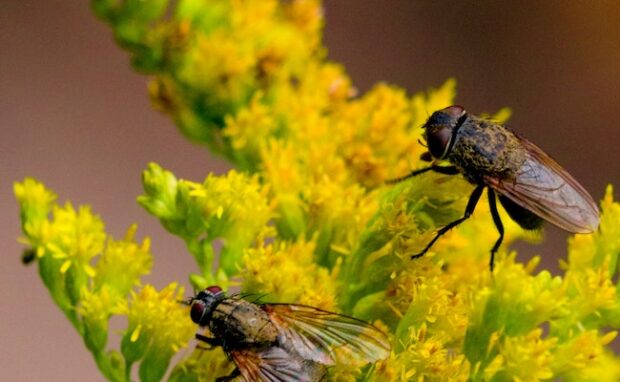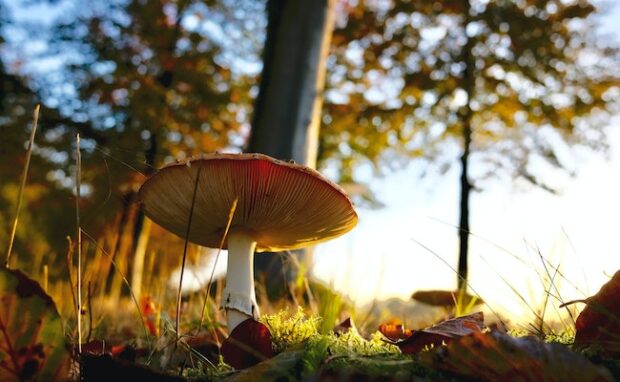Scientists turn flies into biodegradable plastic
Flies are persistent pests but could become our way to a sustainable future. Scientists discovered they can turn dead flies into biodegradable plastics. Don’t worry because the researchers use waste material from these insect’s reproductive processes. Soon, it could help us replace plastics with a more eco-friendly alternative.
We must ensure our world remains habitable for future generations by using renewable energy and sustainable materials. That is why we must explore every viable option, even out-of-this-world ideas like turning flies into biodegradable plastics. As a result, we could get closer to an environmentally-friendly future.
This article will explain how scientists converted dead flies into a biodegradable material. Later, I will elaborate on other eco-friendly projects, such as turning mushrooms into computer chips.
How did experts turn flies into biodegradable plastic?
Karen Wooley and her team acknowledge we have numerous biodegradable alternatives to plastic. However, SciTechDaily says these materials have conflicting applications.
“For 20 years, my group has been developing methods to transform natural products, such as glucose obtained from sugar cane or trees, into degradable, digestible polymers that don’t persist in the environment,” said Wooley.
“But those natural products are harvested from resources that are also used for food, fuel, construction, and transportation,” the head researcher noted. These conflicts could reduce a biodegradable material’s availability.
For example, relying on sugar cane plastics could reduce supplies for sugar production. That is why her colleague Jeffrey Tomberlin suggested using waste products from farming black soldier flies.
These insects start as eggs, become larvae, and become adult flies. Larvae contain many nutrients, so people raise them for animal consumption and waste reduction.
However, flies have a short life span after breeding, so Tomberlin recommended using these adult carcasses to create biodegradable plastic. After all, “We’re taking something that’s quite literally garbage and making something useful out of it,” said graduate student Cassidy Tibbetts.
You may also like: The first-ever flying car is ready for preorders
The Texas A&M University pupil discovered dead flies have chitin, a biodegradable, nontoxic polymer that strengthens insect and crustacean shells. Manufacturers already extract chitin for various applications, but it requires numerous processes to purify the substance.
Conversely, Tibbetts says chitin from flies is purer, so another student from Wooley’s lab converted it into a similar polymer called chitosan. Hongming Guo removes chitin’s acetyl groups to create this substance.
As a result, chitosan can turn into useful bioplastics like superabsorbent hydrogels. Guo’s hydrogel can absorb 47 times its weight in a minute. Wooley says the hydrogel could store rainwater that farmers can use on their crops during dry seasons.
Are there other eco-friendly research projects?
Other schools are creating similarly creative green projects. As mentioned, researchers discovered how to create computer chips using fungi. Johannes Kepler University scientists called this process “MycelloTronics.”
They used the fungus Ganoderma lucidum or the Reishi or Lingzhi mushroom. The team injected Lingzhi spores into moist beech wood shavings. Next, they covered the spores with polyethylene separator grids and stored them at 25 degrees Celsius.
Eventually, the spores grew a “skin layer” that the researchers removed. Afterward, they dried it and applied a thin layer of gold and copper. Then, the researchers surgically removed it with a laser to create circuit pathways.
You may also like: Google Maps helps you become eco-friendly
They consist of fungi, so you can safely throw them away. Also, they are surprisingly durable, withstanding 2,000 bending cycles before they crack, giving them numerous applications.
Meanwhile, French startup Neoplants genetically engineered the pothos houseplant to become 30 times better at cleaning air than regular ones. They used genes from bacteria that thrive in extreme conditions for this improvement.
As a result, their Neo P1 plant can metabolize four major air pollutants like formaldehyde and toluene. Also, it can absorb volatile organic compounds like the benzine carcinogen found in wildfire smoke.
Conclusion
Karen Wooley and her fellow scientists discovered how to turn flies into biodegradable plastic. For example, they created a hydrogel to help farmers water crops during dry seasons.
Wooley said she and her colleagues are trying to turn fly chitin into monomeric glucosamines that can form more bioplastics. Also, they are testing how to use its other components, like its proteins, lipids, and vitamins.
“Ultimately, we’d like the insects to eat the waste plastic as their food source, and then we would harvest them again and collect their components to make new plastics,” she said. Learn more about the latest innovations at Inquirer Tech.

